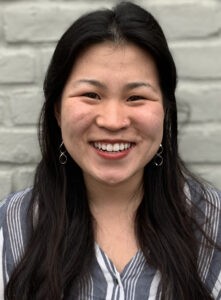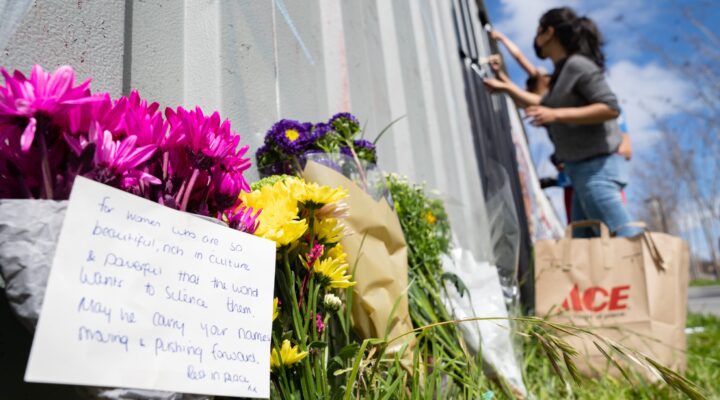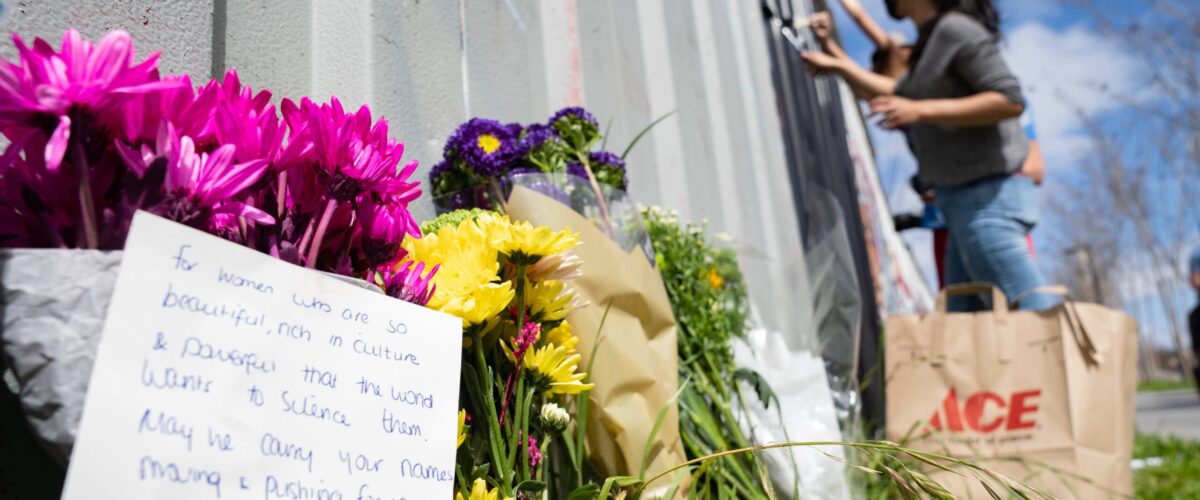It’s been a year. A full 365 days have passed since the day of the shooting in Atlanta where eight people were killed, six of whom were Asian-American women.
I remember following the news of this event and feeling shocked as I attempted to process what I was reading. The identified perpetrator noted he was motivated by sexual addictions that contradicted his religious beliefs and felt he needed to “eliminate the temptation.”
An officer is on record responding that the perpetrator was simply having a “really bad day,” which caught the attention of many people who criticized the dismissive phrasing. The governmental events that followed included a presidential address and worldwide reactions, including leaders from South Korea releasing a statement about the shooting and other hate crimes.

Amanda Clark
In fact, statistics reveal a dramatic increase in hate crimes against Asian American people in the United States across the span of the COVID-19 pandemic. During the pandemic, I personally was called racial slurs and was yelled at to “go back to Wuhan.”
I am adopted from China, and many of the people I spend most of my time with do not resemble me in my ethnic appearance. What I hoped for during the days that followed the events in Atlanta were words from my church community, nuclear family and close friends that would remind me I wasn’t alone in this process of lament and grief.
Instead, it felt like I was navigating this alone as I found a lack of solidarity in the people I hoped would offer some semblance of empathy or intimacy. I was incredibly frustrated with the fact that many churches around me, including my own local church, seemed to read the events of Atlanta with a distant, far-removed perspective as they passively engaged with the event that shook me to my core.
I saw when churches did choose to engage with the shooting, they offered a response more related to sexual sins and repentance than to the actual concern for the increased mistreatment of an entire people group.
“As a Chinese American woman, I waited for those close me to say something that advocated for Asian American and Pacific Islander people, as I wrestled internally and wept for days.”
As a Chinese American woman, I waited for those close me to say something that advocated for Asian American and Pacific Islander people, as I wrestled internally and wept for days. Instead of a statement that addressed the reality of the broken human condition and a counter that there is solidarity within the communities I call myself a member of, I felt more like a passing footnote in the expansive media narrative than a human being made in the image of God.
The people I did share my feelings with seemed to ask the same thing: “What can I do? How can I respond if I’m not Asian American?” The more startling question I often heard was: “What would you like to say? Would you like to speak to that in a larger setting?”
These are questions I hear a lot from many well-intentioned people, often in Christian communities or churches. They raise the consideration of how people can respond to racially charged events when they don’t feel like they identify with the victim(s). The questions I receive make me feel like I am forced to a platform simply because I look like the victim(s), even though I am far from an expert.
In response to all these questions, both those raised by people who feel like they shouldn’t speak on the matter and those directed at me, I would like to open the conversation to consider how Jesus Christ would respond. The life, ministry and teaching of Jesus is marked by ministering to those on the margins or those who live with their backs against the wall. Jesus offered space to have confrontational, disruptive, uncomfortable conversations that forced the religious leaders to reconsider their convictions and allowed the marginalized to be seen as good, created images of their Creator. Today, the people who can make news headlines one week and fade into the blurry background the next week are looking for spaces that provide empathy, intimacy and healing from holistic racial reconciliation.
Some churches believe racial reconciliation can be achieved simply by having a more diverse looking congregation. However, having one Asian American family, or any other minority family, in an otherwise homogeneously white congregation isn’t the mark of racial reconciliation or holistic healing.
“Having one Asian American family, or any other minority family, in an otherwise homogeneously white congregation isn’t the mark of racial reconciliation or holistic healing.”
Jesus demonstrated holistic racial reconciliation as he taught through parables and stories, and I am calling the Christian community today to sit at the feet of other peoples’ stories with humility and charity. This is where holistic racial reconciliation finally can begin.
The Christian community is given the distinct place to bear witness to Christ and the church, and what better way to do that than through holistic healing where people intentionally listen to one another with empathy and intimacy? This is the way Jesus witnessed to the work of the Father and Spirit, and this is the call to Christians today.
My story is one I hope other people can find themselves in. My prayer is that people in Christian communities and churches feel the urgency to have confrontational and uncomfortable conversations that disrupt and interrupt what they have otherwise chosen to label as a normal way of living.
I will be the first to say these conversations are difficult and will be unsettling for everyone. It was uncomfortable to communicate to my family how I felt scared after the Atlanta shooting, and it did not hit my parents until I told them their white sons probably never were called racial slurs growing up, while I have been called racial slurs multiple times in my life.
These types of conversations will not fix the problem overnight and it may even feel like we’re trying to put a Band-Aid over an injury where a bone is protruding. But as we remember the events of the Atlanta shooting that took place this time last year, the Christian community desperately needs to sit down and listen to the stories of others with an increased capacity for empathy and intimacy in hopes of holistic healing.
Amanda Clark is a master of divinity student at Baylor University’s George W. Truett Theological Seminary.
Related articles:
In Atlanta, more denial of persistent racism | Opinion by Sid Smith III
Good news and bad news on prevalence of hate groups
The link between the Atlanta shootings and purity culture | Opinion by Amber Cantorna
Don’t let the Atlanta shooter off the hook by claiming women drove him to addiction | Opinion by Kaleb Graves


